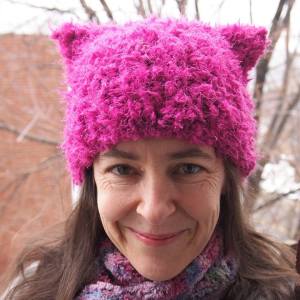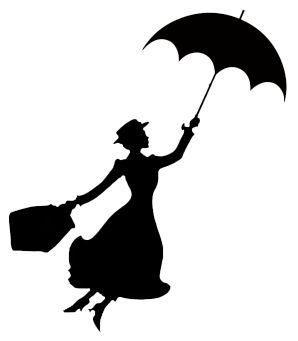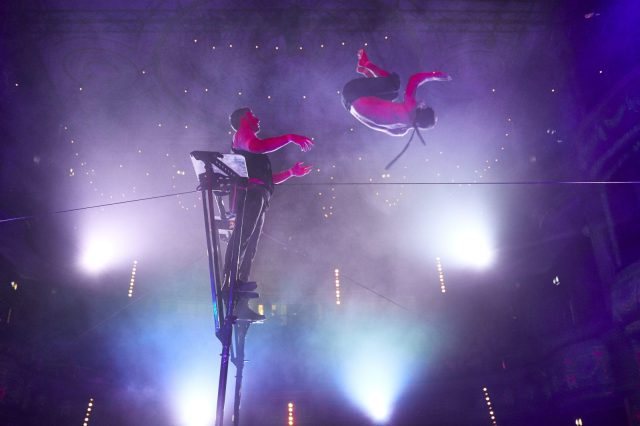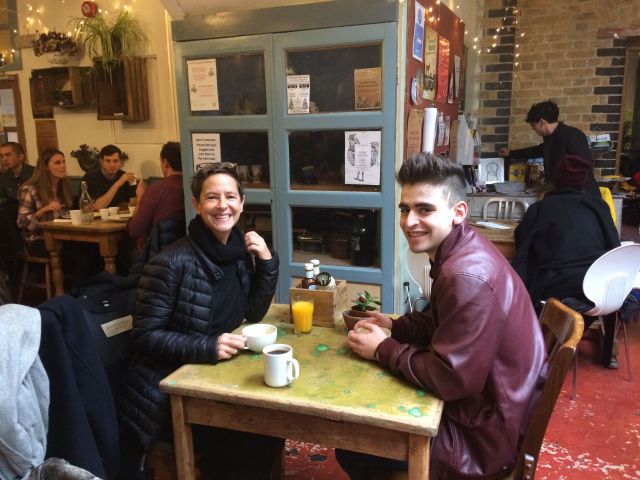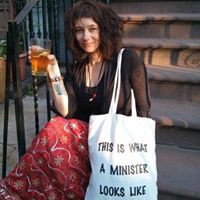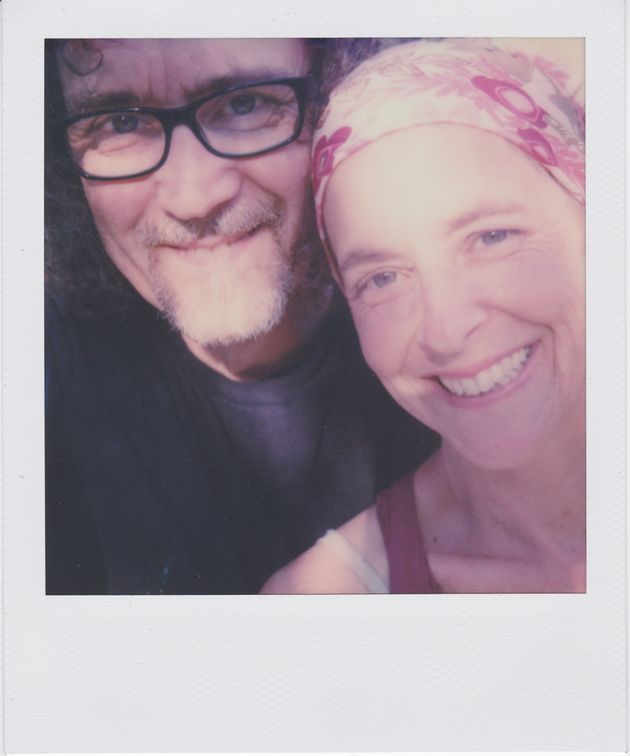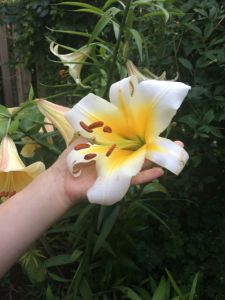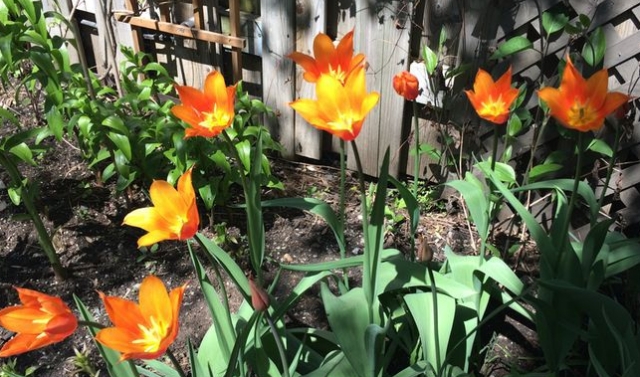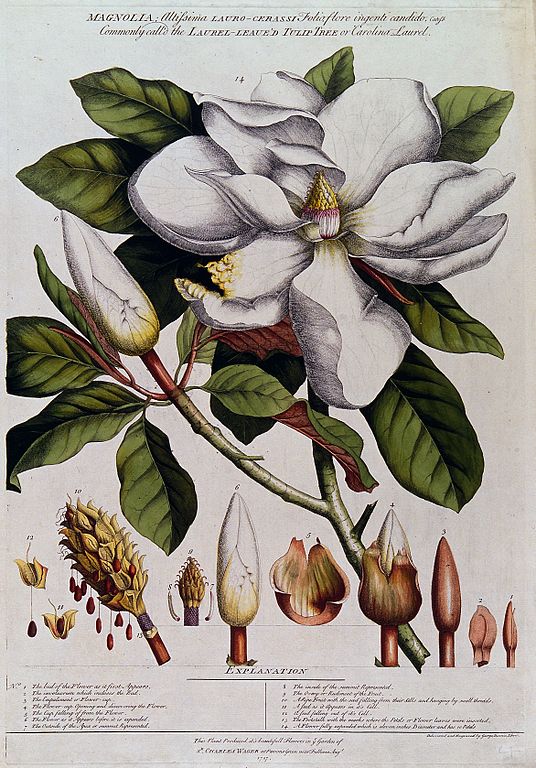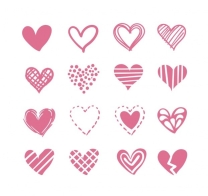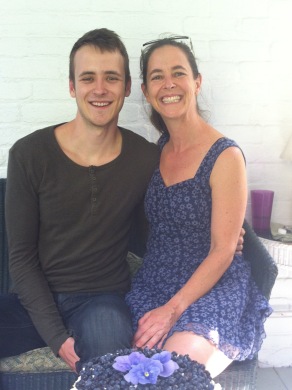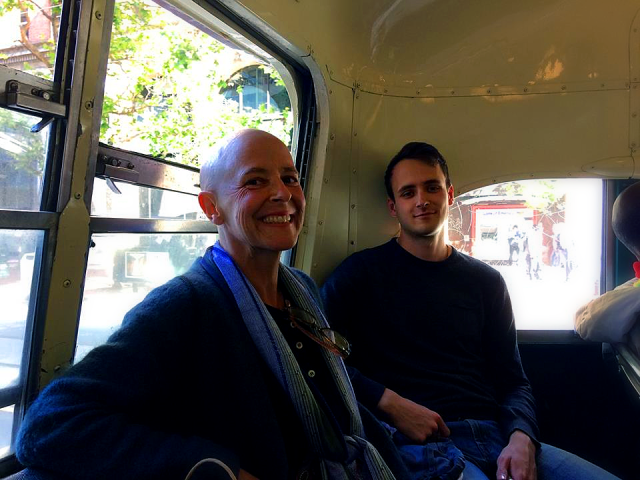
My journal from 2016, which I’m still writing in today. I like the play on the word decomposition.
Last October (2017) I was sitting in a café with Roy and took out my journal to write. I didn’t feel like writing. The cafe was too crowded and busy, not a space for that kind of inward focus. So while I waited for my hot chocolate I leafed idly back through the pages to the year before, October 2016, before I knew I was ill. I read that at the time I had been bothered by a strange, persistent lump and swelling in my calf, which I now realise was a blood clot, a symptom of this sarcoma that was already growing unsuspected in my uterus. But that day in 2016 I believed I was still healthy and was writing about what to do with my day, as I often did. This is what I wrote:
I will have to deal with organizing stuff here a bit first. Still working at chaos reduction, putting my affairs in order. I don’t want to leave a mess for others. Not that my death is necessarily imminent, but I don’t want to be scrambling with that if it becomes so. I had this thought the other day that a cancer diagnosis –the fatal kind– just means you have a better idea than most (or than before) when and how you’re going to die. I also had a spontaneous bliss rush as I lay in bed wondering what was wrong with my leg and suddenly thought it could be cancer. That was weird, but it felt peaceful, like a gift, to feel that way. Not bitter or fearful at all. I do hope that when my time comes I will be in that sort of space. Filled with light and acceptance, gentle love. I need to remind myself to find that place every day. Hard to be there every moment, but more reminding myself should help.
Some people are surprised that I have been able to accept my terminal diagnosis so immediately and peacefully. That 2016 journal entry, I think, explains why in part. I was prepared. I had considered the possibility and processed it. I had imagined it, something I did often enough. And I had received that strange gift of peaceful bliss as an unexpected result of thinking about it. I have no way of explaining that moment, other than to see it as a gift. I don’t know where the gift came from exactly, though I usually just think of it as a gift from the universe. There were other unexpected gifts of that kind over the months leading to my diagnosis, and I was grateful for them too. One was a simple vision of profound connection beyond the limits of this life –to all life, to the entire universe– as I looked upon the trees in my garden from my window; this was also accompanied by a sense of bliss.
When the real-life diagnosis came, I actually was immediately filled by light and acceptance and love.
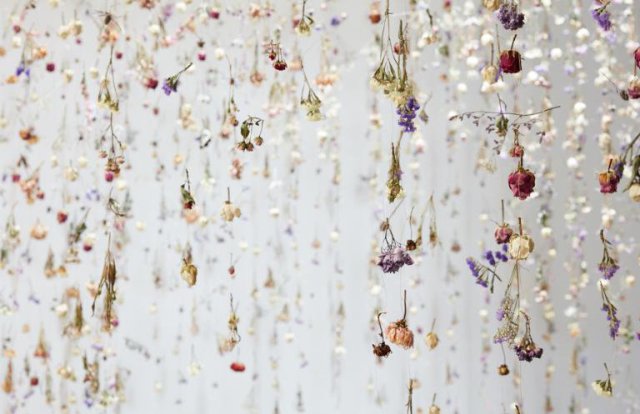
Life in Death, installation by Rebecca Louise Law
I can’t demand such gifts, but I can certainly prepare myself for anything in life by imagining it. Roy noted recently that people often say to him that they can’t imagine how he can do this. Some even declare that they couldn’t do what he is doing. This is nonsense, of course. We can all get through far more than we think we can, especially when we don’t have the choice. But many people banish the thought of disaster or misfortune. Many are superstitious in ways they don’t even realise, believing that the very thought of death or any unwanted thing will bring about the reality. (Would that our thoughts were that powerful and could bring forth all we desire instead of what we fear!) This means not imagining these things ahead of time. And thus being unprepared.
Imagining death or disaster or any other dreaded thing might seem like a morbid thing to do, but for me it was quite useful for bringing a sense of peace and preparedness rather than anxiety. (If you already suffer from serious anxiety I wouldn’t recommend this, since you are probably already over-imagining things going wrong. A different approach is probably needed if you are anxious and get stuck on the negative side of imagining rather than crossing into favourable possibilities as resolutions. Cognitive behavioural therapy (CBT) has been shown to be effective in helping change those patterns for those suffering from anxiety. You can ask my boyfriend Roy about that if you want; he’s over at his blog, The Long Goodbye.)
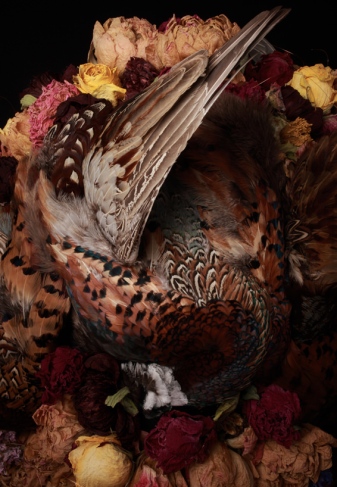
From Rebecca Louise Law’s Flora & Fauna Editions
When worried about something, I used to let my imagination loose and imagine the most dreaded outcomes in dramatic detail. I recall one night as a youth when my parents had driven out to a distant party in the country. As the night grew late and they still weren’t home, I worried and started to imagine the worst. Much of this was imagining how I would handle it. How would I answer the phone call or the police knocking on the door? How would I respond when I went to identify the bodies? How would I embark on my life as a young-adult orphan? How would I mourn this loss? I imagined a variety of reactions, including terrible grief and, eventually, acceptance. Thankfully nothing bad happened in the end, but I exercised my faculties for responding to tragedy, a sort of practice run. I believe I would have been less shocked with a bad outcome and better able to respond as a result. My reactions to lesser disasters throughout my life indicate that this has worked to some degree. The bad things I hadn’t imagined ahead of time were more difficult to process.

The edition of Jane Eyre I read as a child and still cherish today.
As for my own mortality, I have been contemplating that since childhood. I read a lot as a child, and the literature I read never shied away from death. In fact, most of the protagonists were orphaned. And most stories presented at least one death in detail, often with a death-bed scene and a funeral. The internal grieving process was also part of the story, since novels can present a character’s thoughts and feelings. I read Jane Eyre as a child, and though I don’t recall the reading experience now, I’m sure I was much impressed by the gentle young Helen’s peaceful acceptance of her own imminent death. (I re-read Jane Eyre last summer when I decided to revisit my most beloved books in the time I had left.) The Anne of Green Gables series, another childhood favourite, also presented death as a common part of life that came to both young and old. So though there were no deaths near me in my actual childhood, death was always there in my imaginary life and reading.
I never forgot death was waiting for me and everyone else, including those I loved.
Later, as a circumstantially depressed and suicidal adolescent, I became obsessed with dying. I spent countless hours imagining and hoping for my death. Though desperately wanting to be dead, I would not actually kill myself since I couldn’t bear to inflict such grief on my mother—part of having a well-developed imagination meant I also had plenty of empathy. I consoled myself with courting death in other ways. I tried to think of ways to die “accidentally” or contract a fatal illness. Since I was still young and romantic, this pastime was rich with vivid detail and dramatic story lines. So I was secretly thrilled

Me, in the dark days of my youth. I had even painted the walls of my room black!
when I was actually diagnosed with tuberculosis at that time—an illness with so much literary history! How many characters in the dark Russian stories I loved had wasted away from consumption! But alas, my illness turned out to be just pneumonia, which I did my best to exacerbate with plenty of smoking and other self-destructive behaviour. Nevertheless, my sturdy good health asserted itself. But since hoping for death is the antithesis of fearing death, this stage of my life made me quite comfortable with most aspects of dying and death, an ease I have maintained since. Fortunately my suicidal depression also resolved when I finally found a path in the world that seemed right for me and I went back to college. The fear of death only returned when I became a new mother and was worried about dying and leaving my baby motherless and unloved, believing nobody could love him the way I did. But that fear also dissipated as my children grew up and didn’t need me so much.
Now I am back to viewing death as simply the end point of the glorious and mysterious gift of life. It’s perfectly normal, natural, and necessary, if unwanted (though some deaths, especially the violent ones, are anything but normal and natural). Every living being in the world must die, and countless people (over 100 billion, it is estimated here, have died before us since the beginning of humanity). I always want to say something silly, like “And they’re fine,” or even sillier, “And they survived.” Obviously they did not in a physical sense, but in some way I believe they are fine, as our deaths have always been part of the plan. Why would there be anything to fear in that? I know I need to go and leave my place to another. And imagine what wonderful things that next person might do in the world!

It is also estimated that there are 100 billion galaxies in the universe. (A NASA Hubble Space Telescope compilation photograph)
Death being the end of this life doesn’t exclude the possibility of an afterlife or continued connection to this world in some form. There is still room for whatever belief or faith one may choose. I don’t have proof of another dimension, which also means I can’t claim whatever I’ve imagined as the one true afterlife (perhaps with rules for inclusion and exclusion, like the Christian idea of heaven), but I do like to believe in one. If there is consolation in that belief, that is a good and worthwhile thing. As humans, we are free to believe without evidence and even against evidence (as my philosopher friend Miriam has explored in her book, Believing Against the Evidence: Agency and the Ethics of Belief, and other academic works). Yet we don’t want to use a belief in an afterlife as a way to avoid confronting our mortality.
Especially for those who don’t believe in an afterlife, a negative attitude –fear or dread or denial– about death can be debilitating. People often tell me of their own or their dying loved ones’ fears, depression, or denial of death, and how these have prevented both the dying and the bereaved from finding peace in the end. These feelings, while common and an expected part of the wide range of emotions in the dying experience, are a problem when we get stuck in them and when they keep us from acknowledging and talking about death with loved ones. I had a friend who was so depressed by his terminal diagnosis that he refused all visitors in his last months, and years later it still bothers me that I couldn’t see him. Imagine how those closer to him must have felt! The people who share these experiences with me are troubled rather than consoled by their final memories of a loved one’s death. It doesn’t have to be this way, but it takes some courage and determination to make sure the needed conversations happen despite the fears. And we don’t have to wait for a terminal diagnosis to have those conversations, since death can come at any time, in any way—as we can all well imagine!
(The Gashlycrumb Tinies alphabet book presents Edward Gorey’s darkly whimsical imaginings of odd ways to die. It was one of my son’s childhood favourites. He even made up a new O page for his own name!)

I’ve known people who have never admitted to those closest to them that they were dying, despite all evidence to the contrary. And their loved ones never brought it up or challenged them to acknowledge it either. That meant they never got to say goodbye, never made peace with what were in some cases complicated relationships. And I know others who have left it to the very last moment, like one who ended up with forty visitors in one day, all in a rush to say their goodbyes once he finally went into a palliative care home just days before dying. My own boyfriend spent decades under the silent shadow of his father’s death, unacknowledged as imminent in the young family until it had happened, then never spoken of again until they were all adults. So many families miss the chance to express their love and gratitude and find peace in that final letting go, and that loss can lead to painful regret.
This avoidance is understandable in a culture that is constantly feeding our fear of death with endless horrific stories and awful images of murdered bodies on the news, in TV shows and movies. These are not balanced by positive or peaceful images of death, and so our view of death is skewed toward the horrific. Yet as many of us become numb to the dreadful imagery of those distant deaths, we also push real death away when it comes too close in our own lives.
And many experience painful personal loss without the guidance to make peace with it. In our secular society too few of us have exposure to spiritual discussions of death and its broader meaning in our lives. There is little wonder why our culture’s fear and avoidance of death has grown so huge and unmanageable.
Yet finding peace in death is an invaluable gift available to all of us.

My own path to this peace is of course unique to me (and I certainly don’t recommend suicidal depression as part of the way there), but there is a path for each of us, I am convinced. It can begin with simply making the choice to stop avoiding the thought of death. And if afraid or already traumatised by loss, to simply choose to face it, and stay with it for a while, rather than habitually turning away in fear or aversion or pain.
Roy, who lives with anxiety, says his CBT therapist’s advice was to
accept my anxiety and worry, to invite it in for a sit-down. Sit with it for a while, without trying to process it. Just sit with it. The idea being that recognising it, accepting it, seeing what it does to my body, will reduce its negative power over me.
Roy notes that it takes some strength to be vulnerable and accept those uncomfortable feelings. But that discomfort decreases with practice and opens space to examine the source of anxiety or fear.
Then death can be gently explored in the imagination, its varied sides and manifestations discovered. There is so much to our mortality if we look beyond the initial horror and dread we may have learned to feel. I do believe a steady gaze upon death can allow it to reveal its many gifts. These gifts can include a deep serenity, a solid sense of purpose in life, profound gratitude, and other sources of meaning and true happiness. If we learn to receive those gifts, then when death comes upon us or those we love, we will be prepared and freed from fear. We will also learn much about how to live well in the meantime. I know I am grateful for all I have learned so far!
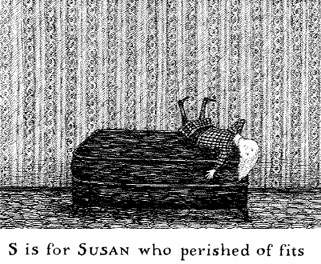




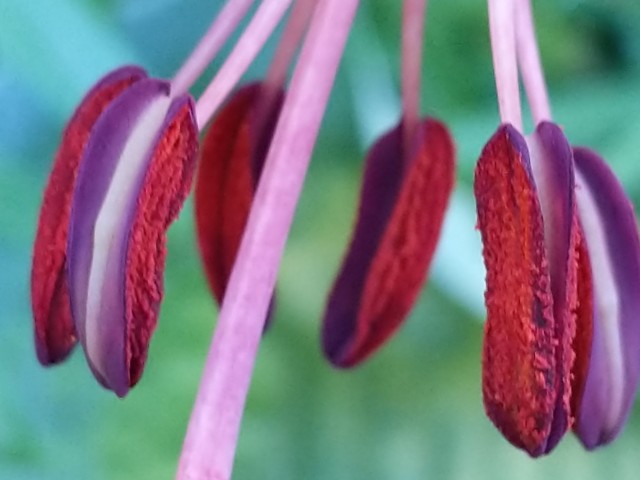
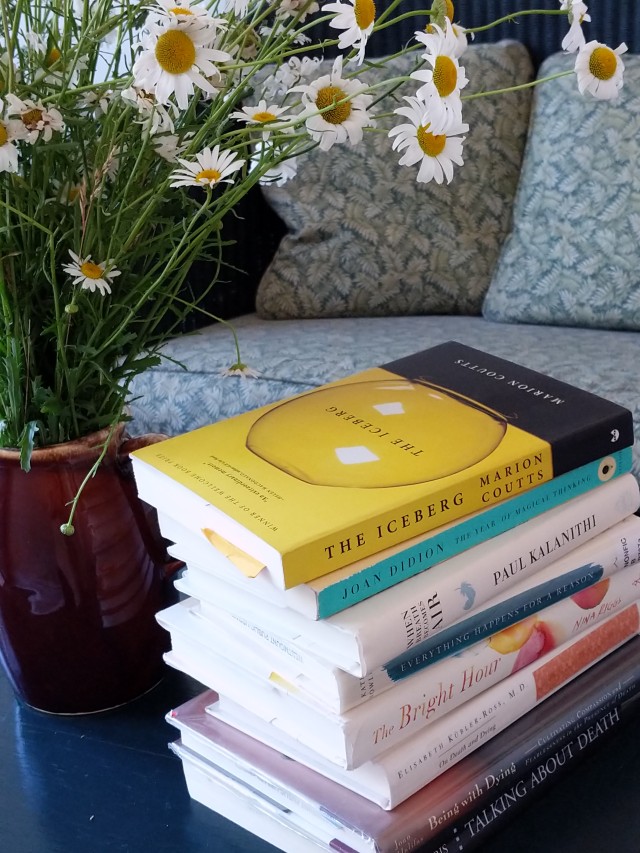

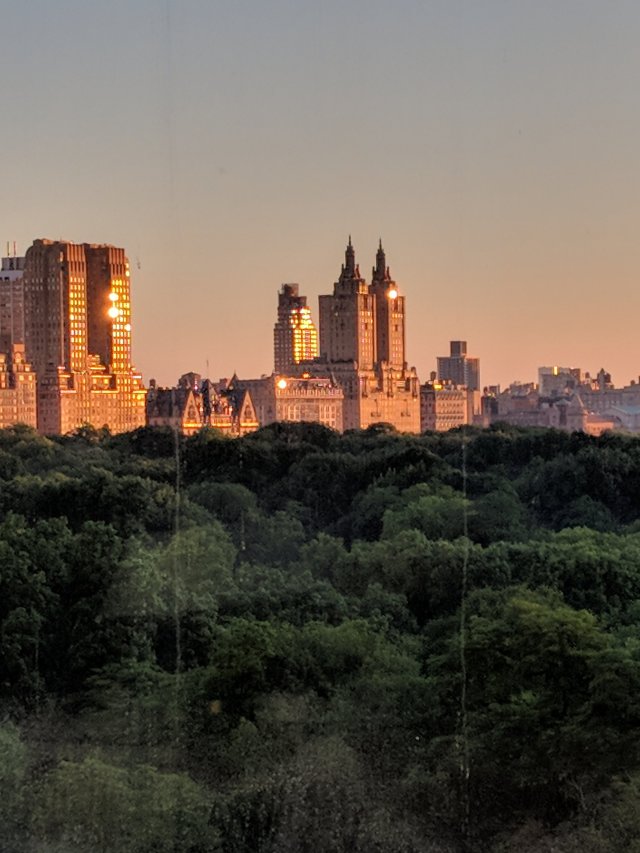
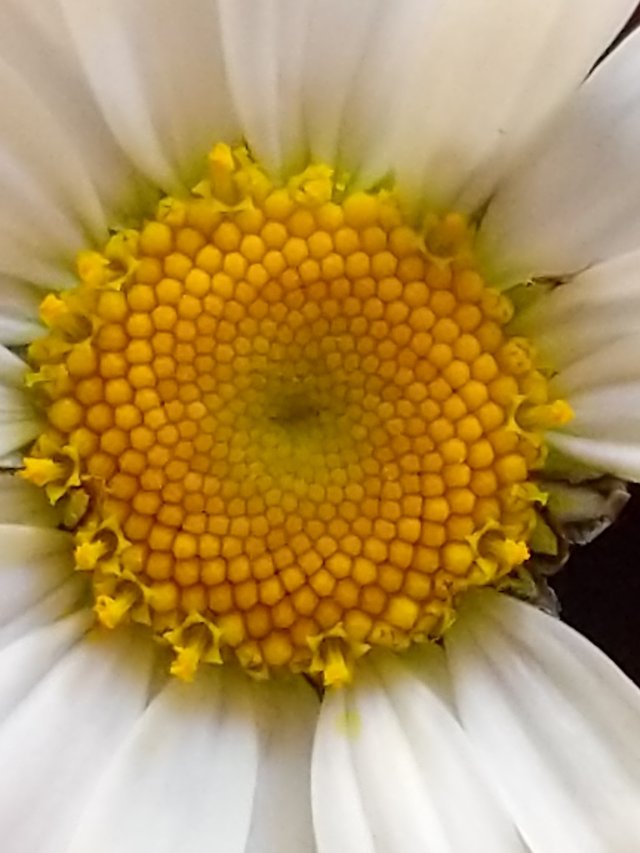





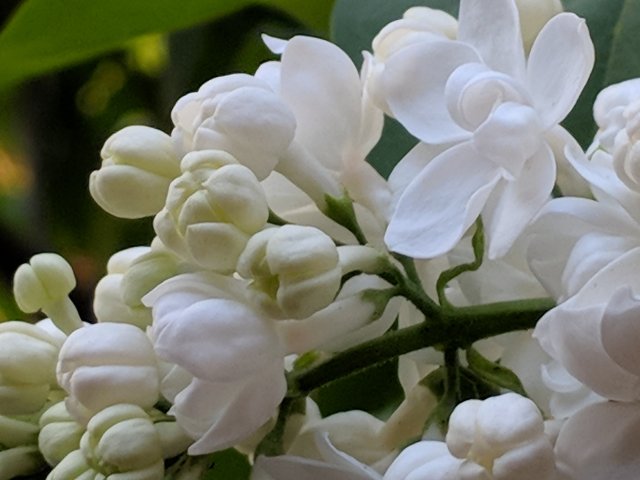
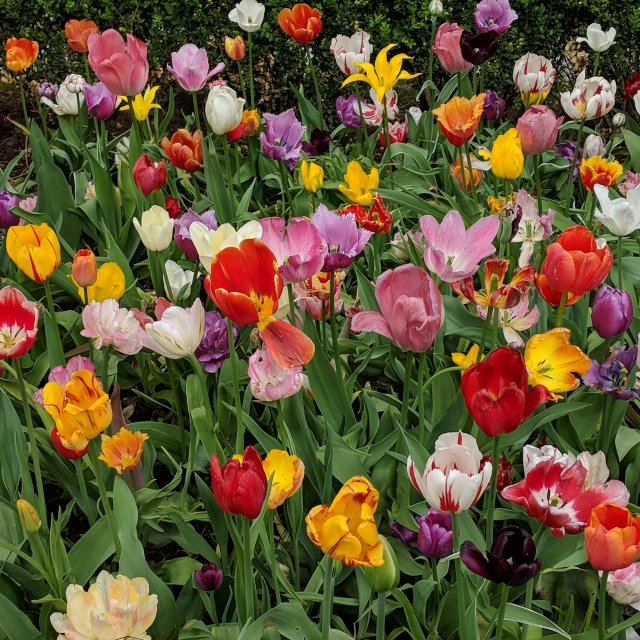

 When I sat in a brief meditation one day last week with Roy, the image of the tree came to me. I thought about the mirrored structure of the root system below ground and the branches above. The roots draw nourishment from past life, from dead organisms that have decomposed into fertile soil. The leaves on the branches gather energy from the sun, the light of the present moment. The tree then expresses itself by flowering and producing the fruit and seeds of the future.
When I sat in a brief meditation one day last week with Roy, the image of the tree came to me. I thought about the mirrored structure of the root system below ground and the branches above. The roots draw nourishment from past life, from dead organisms that have decomposed into fertile soil. The leaves on the branches gather energy from the sun, the light of the present moment. The tree then expresses itself by flowering and producing the fruit and seeds of the future.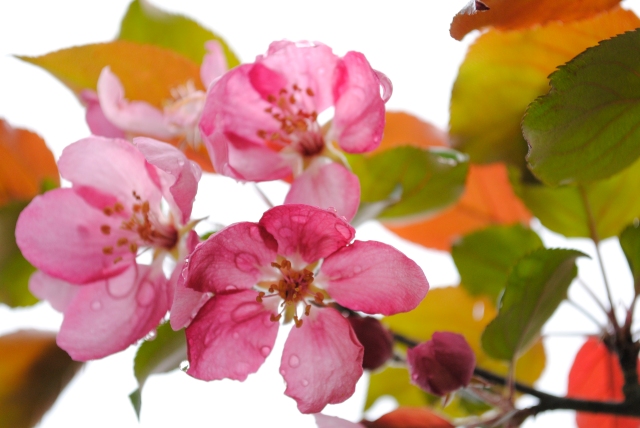
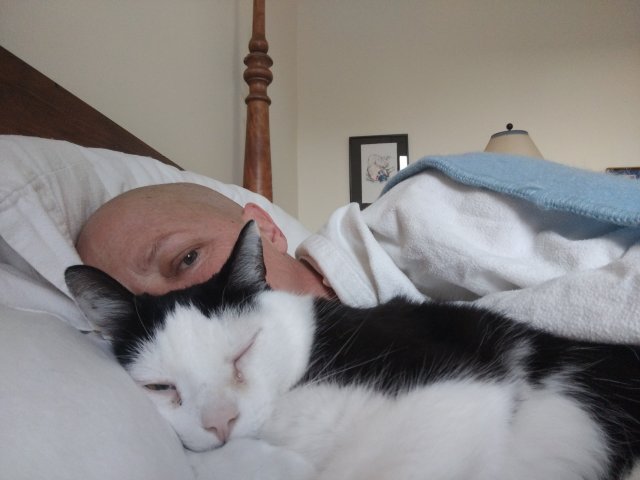



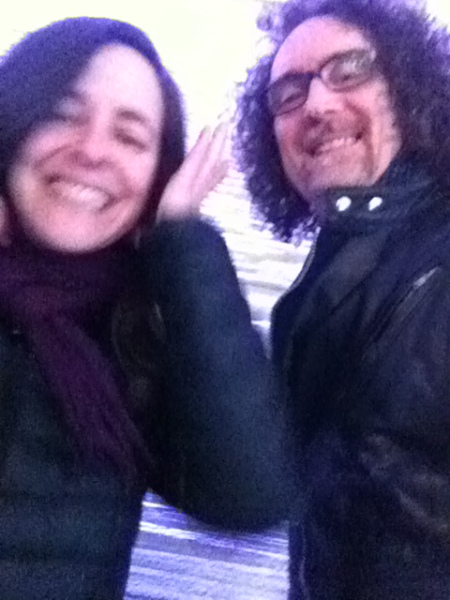
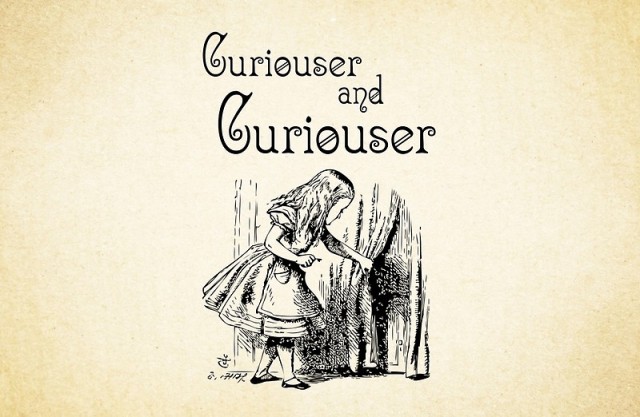














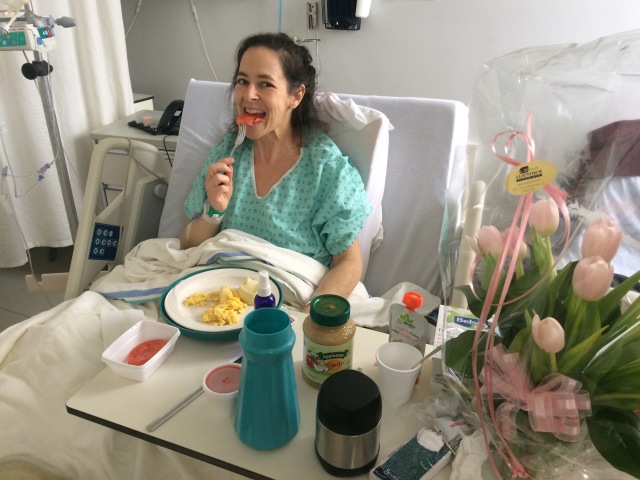

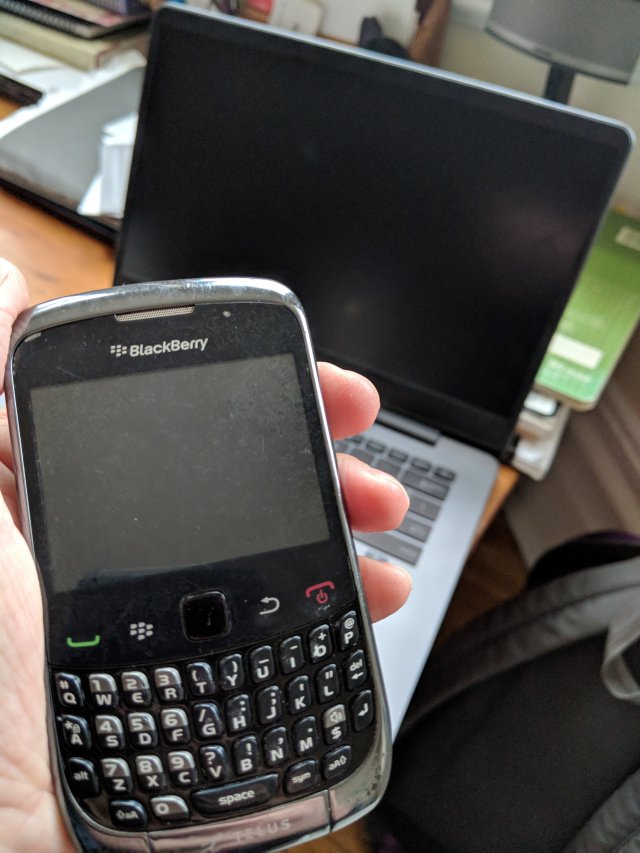
 And we have seen monkeys! Fiercely growly howler monkeys all around! They sound like King Kong in the tree tops, truly intimidating, but then they just drape themselves over a tree limb, tethered by their tails, and nap: an excellent example of how to relax! And we are delighted by the plethora of hermit crabs scurrying into their vast variety of shells on the paths at night. They are a wonder!
And we have seen monkeys! Fiercely growly howler monkeys all around! They sound like King Kong in the tree tops, truly intimidating, but then they just drape themselves over a tree limb, tethered by their tails, and nap: an excellent example of how to relax! And we are delighted by the plethora of hermit crabs scurrying into their vast variety of shells on the paths at night. They are a wonder!

